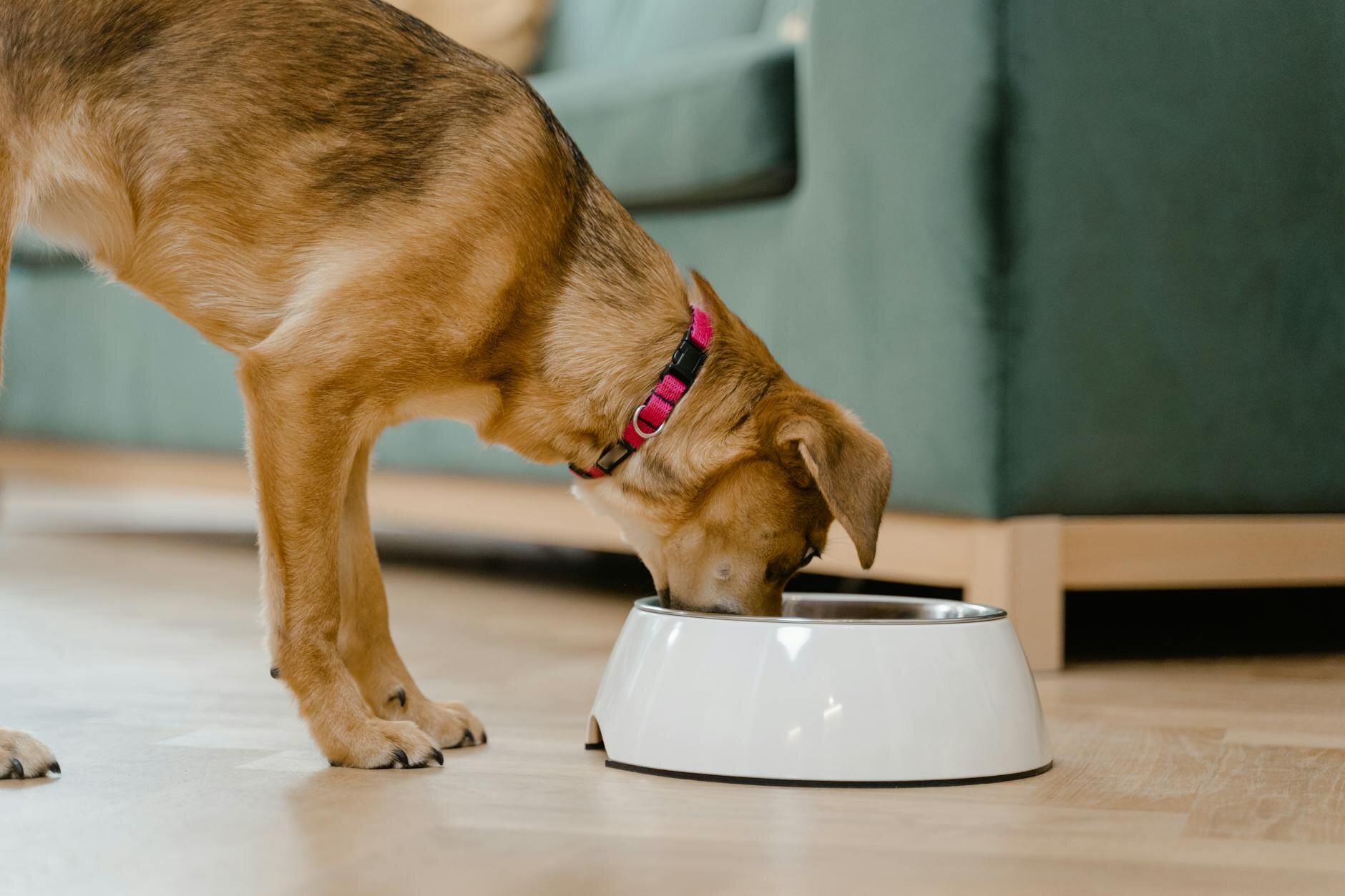Last Updated: 20/06/2025
Best Foods for Dogs with Diarrhoea
Does your dog have the runs? Read through our Vet-written guide to find out the common causes of diarrhoea and the best foods to feed your dog.
Author: Dr Michelle Wong BVSc
Reading Time: 20 minutes - medium read
My dog has got runny poo, what should I do? In many cases, this could be from a new food introduction and gastrointestinal signs are mild, tending to resolve quickly on its own. If your dog is also vomiting, flat and depressed, or not eating, then it is time to bring them in to see your vet. Ongoing or severe diarrhoea can lead to dehydration which will require fluid therapy. Check that your dog has been up to date with vaccinations and on regular parasitic prevention. Let your vet know if there have been any lapses. While your dog is recovering from gastrointestinal illness, a bland diet is often the best remedy.
In this article
Symptoms

Signs of diarrhoea could range from soft stool to loose and watery stool with no shape. Pets can become dehydrated as the diarrhoea continues and may also show signs of vomiting. There could be some degree of abdominal discomfort. Dogs with pancreatitis often appear to be hunching as they tend to have a painful belly. These dogs should be seen at a vet as soon as possible. Mild forms of diarrhoea may be more subtle, as the stools still retain some shape and especially if the dog is still bright and active. Check out our poo chart to see if your dog is passing healthy stools.
You should take your dog to the vet if you notice the following symptoms:
- Dehydration
- Lethargy
- Vomiting
- Young puppy, or elderly and immunocompromised
- Blood in stools
- Has been over 2 days
- Not eating
- Painful abdomen
- Flat and depressed
The best diets for diarrhoea in dogs
The ideal diet for your dog depends on the cause of their diarrhoea. One diet might work better for dietary indiscretion but another might be more suitable for allergies. As such, each condition has been elaborated on below, with top recommended diets listed accordingly.
1. New food introduction or dietary indiscretion
Gradual introduction of new food is always recommended and is best for avoiding tummy upsets. Mild, transient upsets may still occur but these should resolve within a few days. Some dogs which we all fondly refer to as 'garbage guts', will not pass up an opportunity to steal from the BBQ plate or kitchen table. That piece of meat that fell on the floor has not gone unnoticed, swiftly demolished within seconds and a slight chance of an upset tummy later on.
As these pets recover from their acute gastrointestinal illness, they can be fed bland and highly digestible food as these can provide readily absorbed nutrients with minimal irritation.
Want to know more? Read our article How To introduce A New Food To Your Pet.
2. Pancreatitis
A common factor in the development of pancreatitis is the exposure to fatty foods. To help manage this condition, a low fat food is often recommended and is very effective in preventing recurrence. Prescription diets which have been formulated specifically for dogs with pancreatitis contain about 7% fat in the formula and should also have a clear label on the packaging which states "Low Fat". Regular everyday healthy dog food typically has about 17% fat content in comparison.
Best diets for pancreatitis
3. Inflammatory Bowel Disease (IBD)
Inflammatory bowel disease, or IBD, is a common cause for chronic gastrointestinal issues. This condition occurs when there is an hypersensitivity reaction to an irritation inside the gut, whether its parasites, bacteria or food sensitivities. There is no 'right' or 'wrong' food, most food allergies develop over a period of months or years of being exposed to a particular food. An inflamed gut lining disrupts nutrient absorption leading to weight loss, diarrhoea, and vomiting.
Dietary management is often an important part of treatment for IBD. Hypoallergenic diets such as the Hills Z/D prescription food can help to avoid allergic reactions to food and are typically used in food trials to diagnose food allergies. Prescription hypoallergenic diets are made with a hydrolysed protein source which means that the protein has been broken up into smaller pieces that cannot bind allergy receptors on your dog's immune cells and therefore reduces the risk of a reaction. Alternatively, a novel protein diet could be used, containing a protein source which your pet has not been exposed to before like goat, duck or venison.
Always check with your vet before starting a prescription diet, these should be fed exclusively and given under the direction of your veterinarian.
Best diets for IBD
4. Food allergies and intolerance
Food allergies can be managed with hydrolyzed diets, or alternatively, using a novel protein diet. Novel protein diets can be useful as your pet has not had the chance to develop a hypersensitivity reaction. Many natural and grain free diets may be suitable as a novel protein diet as they use less common ingredients such as venison, kangaroo, duck, goat. Always make sure to check the ingredient list to ensure that there is only one single source of protein.
Best diets for food allergies
5. Parasites or infectious causes
Regular vaccinations and intestinal worming prevention can help to prevent infections. Make sure that your worming prevention covers for hookworms, roundworms and tapeworms. Effective intestinal wormers which will treat and protect against all the above include Drontal, Paragard or Milbemax. Learn about the worming products for dogs.
If an infectious cause is suspected, your vet may collect a faecal sample for diagnostic testing. Bacterial or viral infections could also be picked up on diagnostic tests. Treatment will depend on the specific cause. To help support their digestive system as they recover from the infection, a nutrient dense and highly digestible gastrointestinal diet is recommended.
6. Other medical conditions
Other causes for diarrhoea could include reactions to antibiotic treatments or medications, other medical illnesses, and cancer. These typically involve different management strategies and simply providing a gastrointestinal diet may not resolve the problem.
What about Commercial Diets?

Commercial or non-prescription foods could be helpful in managing mild sensitive stomachs. These diets are formulated to be easy on the gut and support healthy gut bacteria. Dogs who are generally healthy but are prone to having tummy upsets can benefit from these digestive care diets. Think your pet might have a sensitive gut? Learn more about sensitive stomachs in dogs.
Best digestive support diets
Further Reading
Want to read more? Check out our other articles:

